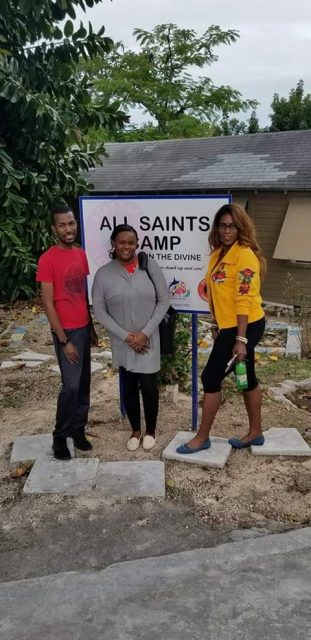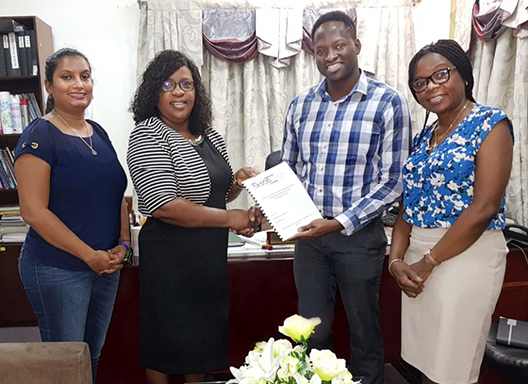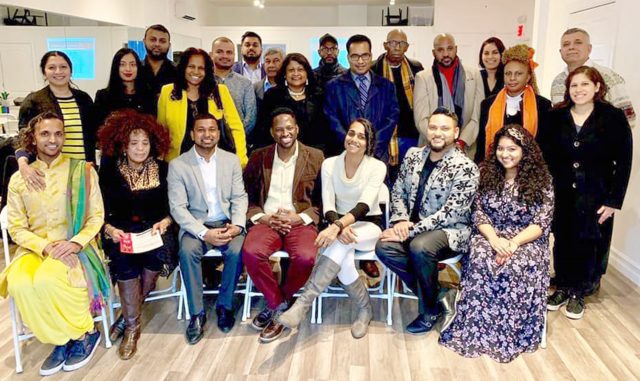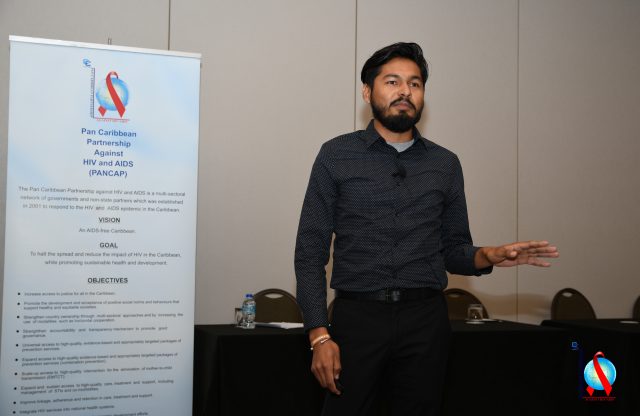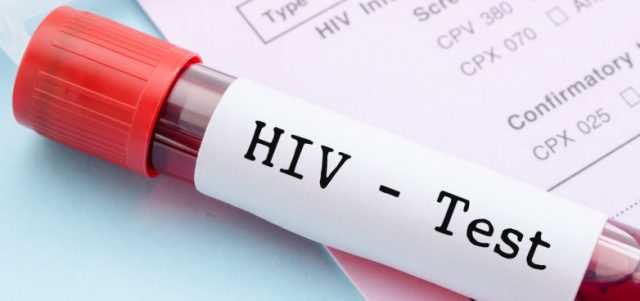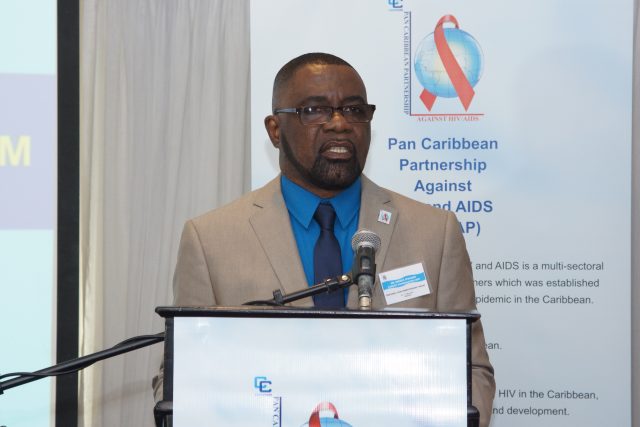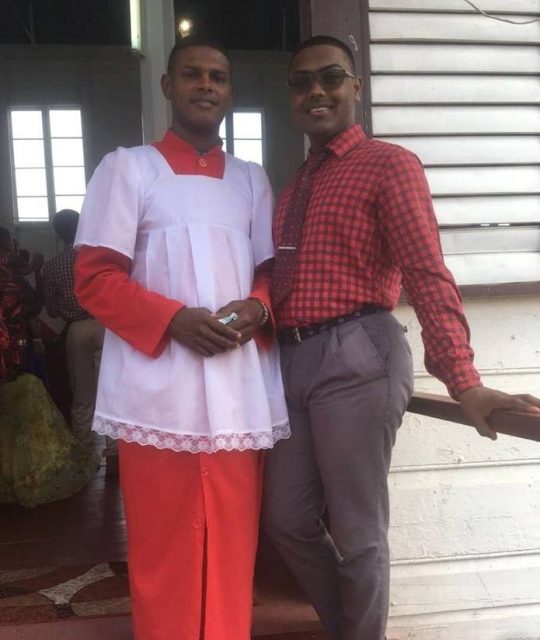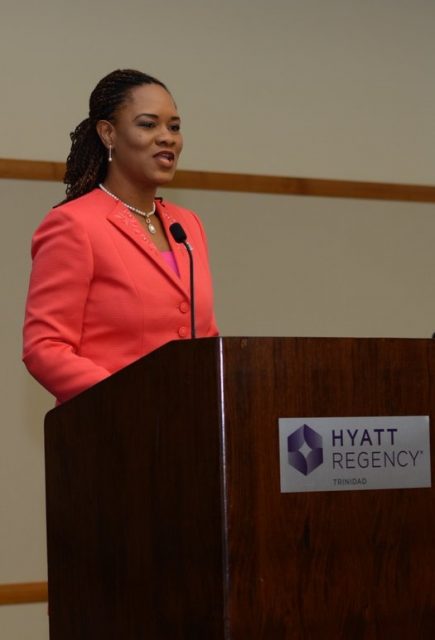Image: (L-R) Marvin Livan and Peter Pooran
Written by Subraj Singh, Society against Sexual Orientation Discrimination (SASOD)
Earlier this year, I spoke to Marvin Livan and Peter Pooran, a young same-sex couple, who identify as LGBTQ+ Guyanese, as well as church-going Christians. Their story is unusual and beautiful and serves as a reminder that there are still people in the world who use their faith to do good, people who try to represent the tenets of the Bible, which teaches love and acceptance for all people.
Marvin and Peter use their religion in a way that brings them closer together as a couple. Perhaps this is unsurprising given that the duo actually met in a church. Prior to recounting the events of the day when they first saw each other, Marvin acknowledged that although he had been married to a woman before, he had come to a point in his life where he had to authentically face his attraction to men, and therefore, when he saw Peter in church on that particular day, it was easy for Marvin to approach and talk to him.
The church tradition helped to facilitate the meeting of the two young men, since it is customary in for the congregation to mingle at the end of the service, to converse or maybe just hang out. It was in one of these moments after the church-service that Marvin took Peter’s copy of the Bible and wrote his number at the back, with the advice to call him if Peter ever wanted to talk. Although there was an attraction from their first meeting, Peter did not call Marvin right away. After several months, Peter’s call led to the men conversing more often and this laid the foundation for their romantic relationship.
Marvin notes that even though their relationship has the normal ups and downs that are experienced by every young couple, he believes that their relationship is strong, especially with the emphasis that they put on being together and on being faithful to each other. He also says that he has been accepted as a member of the Anglican Church and that although there are people within the church who know about his relationship with Peter, he is still accepted and he still maintains his status as an avid churchgoer. Marvin hopes to one day become a priest and to be able to invite LGBTQ+ persons into the “house of God.” As a priest, he hopes one day to facilitate persons to serve in the church if they have the call to serve, regardless of their sexual orientation and gender identity. Marvin credits his love of church and the joy he feels being a Christian to his religious upbringing and to those who encouraged him to become an altar boy when he was a child.
Peter for his part shares that he is as religious as his partner, pointing out that he has been going to church since he was seven years old. When he met Marvin, he was hesitant about attending his partner’s church. However, after seeing the impact the Anglican Church had on Marvin, Peter finally decided to give it a chance. He describes his experience of stepping into the church in terms of profound sanctity and credits this joy and sense of fulfillment he experienced in the church as the reason for his continued presence there.
Peter believes everyone, regardless of their sexual orientation and gender identity, should come forward to serve the Lord. This is something that Marvin also advocates for, as he maintains that the church can be a place of education on gender and sexual diversity and a place for LGBTQ+ persons to meet other people who intersect with the Christian community, such as Marvin and himself. Marvin firmly believes that Jesus loves LGBTQ+ people exactly as they are.
Peter plans on coming out to the priest of the church they attend, and this truly seems to be important to him, which is unsurprising since many gay people long to be accepted in any social group or institution as their true, authentic selves. He is convinced that the reactions of fellow parishioners to him will not change and that he will continue to be accepted in the church, as there are already some people in the church who are aware of their relationship.
On the reactions of other sections of the Christian community who preach homophobia, Marvin contends that the evidence for a case against homosexuality in the Bible is weak and sees his sexuality as a blessing from God. He also emphasizes the fact that everyone sins and that there are aspects of the Bible that are conveniently left unaddressed by homophobes in order to maintain a lack of culpability and repentance for the sins they also commit that are outlined in the Bible.
Both men believe that human beings are human beings and they should be allowed into the church because sexual and gender minorities have the same emotions and beliefs as everyone else, and people should have the right to believe in and serve God.
Being so vocal about the church and sexuality issues places Marvin and Peter in a special category of Christians who are able to reconcile their love for each other and their religion in a way that does not require them to compromise their feelings about who they are and about the church in any way. They firmly believe that the church can support LGBTQ+ people to live their truth and that it is the Christian way to welcome all, to represent goodness and kindness, regardless of who the person is. They both are extraordinary not only in their love for each other but in their dedication to their faith and the ways in which they want these two major parts of themselves to come together and work for the betterment of the entire world.

